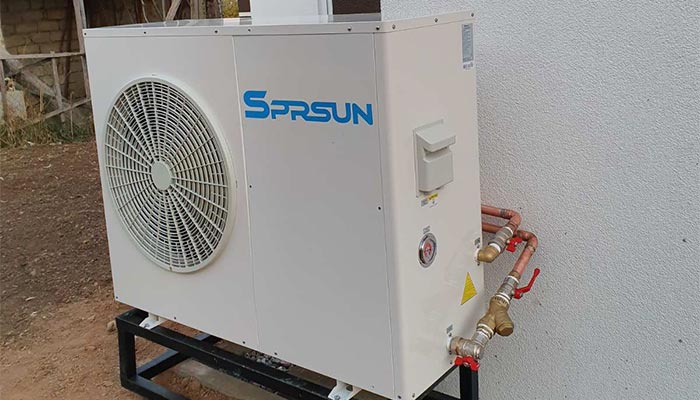Views: 489 Author: Site Editor Publish Time: 2020-02-11 Origin: Site
Some customers who use air source hot water heat pumps reflect that there is a "buzzing" noise when their air source water heater is running. In fact, before each heat pump leaves the factory, the manufacturer usually carries out noise tests on the machine by conducting closed treatment on the compressor and covering a layer of sound-absorbing cotton inside the shell, so as to ensure that the sound generated by the unit during operation is within a normal range.

If the compressor breaks down, the noise will become much louder and this will affect the normal use. If the compressor operates normally but the installation is unscientific and unreasonable, it will also cause the compressor to generate excessive noise. For example, if the unit is not placed horizontally during the installation process, it will lead to the collision between the working medium copper pipe and the shell during operation, or the friction of the fan blades in the crate, which will produce a lot of noise, not only affecting the rest of the surrounding residents, but also influencing the service life of the unit and causing failure. Only correct and scientific installation can reduce the noise during the operation of the unit, which guarantees the normal operation of the heat pump unit and reduces the impact of noise on households.
In addition to the attention of merchants that should be paid to installation, users should also follow the tips below:
Reduce the impact of the noise caused by the air water heat pump unit. For example, the compressor should be equipped with a muffling cloth, and the fan adopts the silent type. It is recommended to select a low noise air source heat pump water as far as possible.
In addition to the good vibration reduction of the internal compressor pedestal, the base of the whole heat pump should also have vibration reduction measures. In addition, the unit should stay as far away from the room as possible, or add a sound absorbing screen between the heat pump and the adjacent room, but it should be noted that the sound insulation screen should not obstruct the ventilation air flow.
Arrange the heat pump on the top of the building to minimize the impact. Sound proof doors shall be installed on the building roof where the heat pump is located, or the heat pump unit and the core of the building shall be separated with auxiliary rooms (such as a water pump room or a power distribution room).
Water pump is also the main noise source, and the vibration and noise isolation of water pump is also important. If conditions permit, the water pump can be placed indoors, which can be rainproof and soundproof. Sound absorption treatment shall be conducted in the water pump room. If the water pump is placed outdoors, the sound absorption material pasted in the rain cover has effects on noise reduction.
2021-12-06
2022-01-07
2021-10-30
2021-11-30
